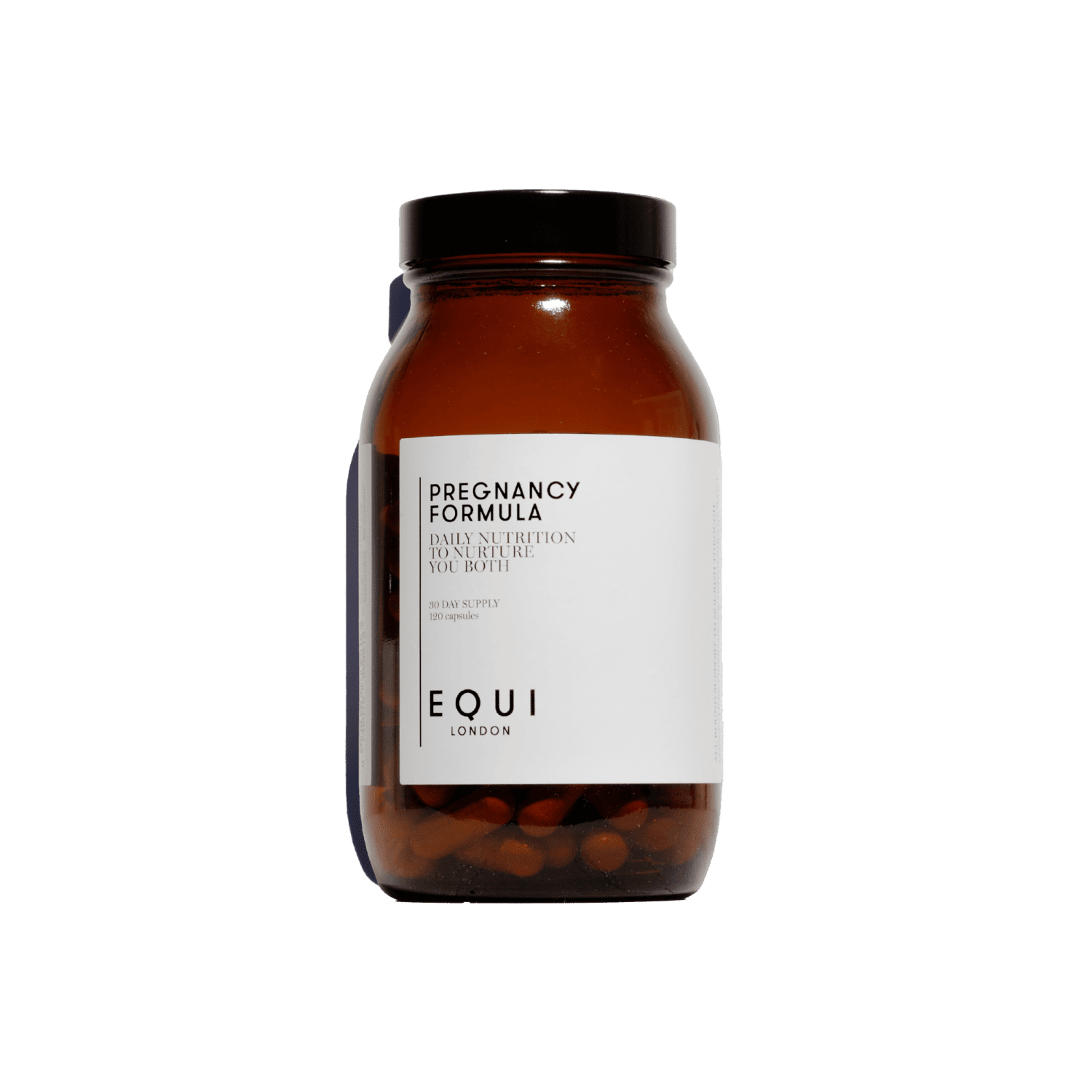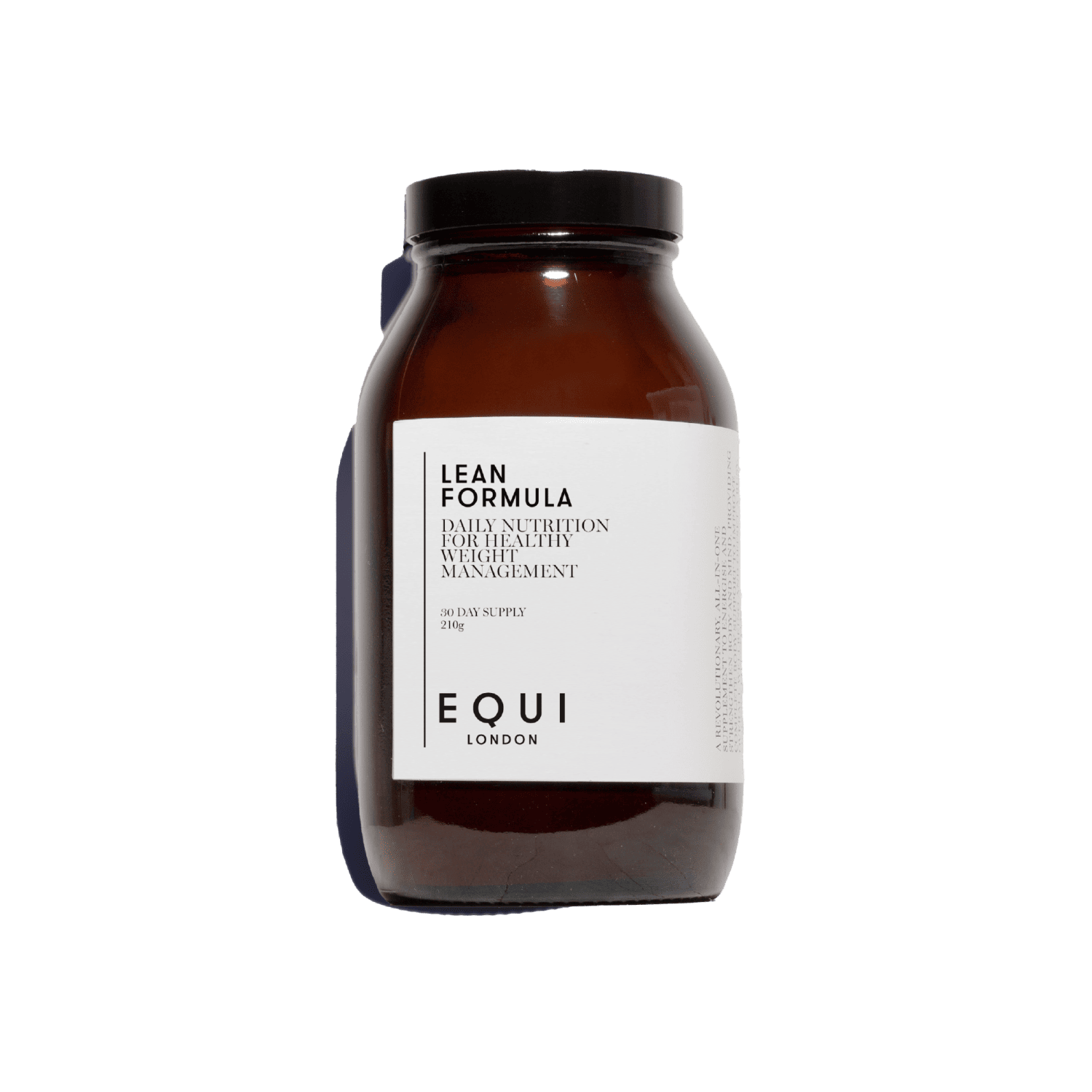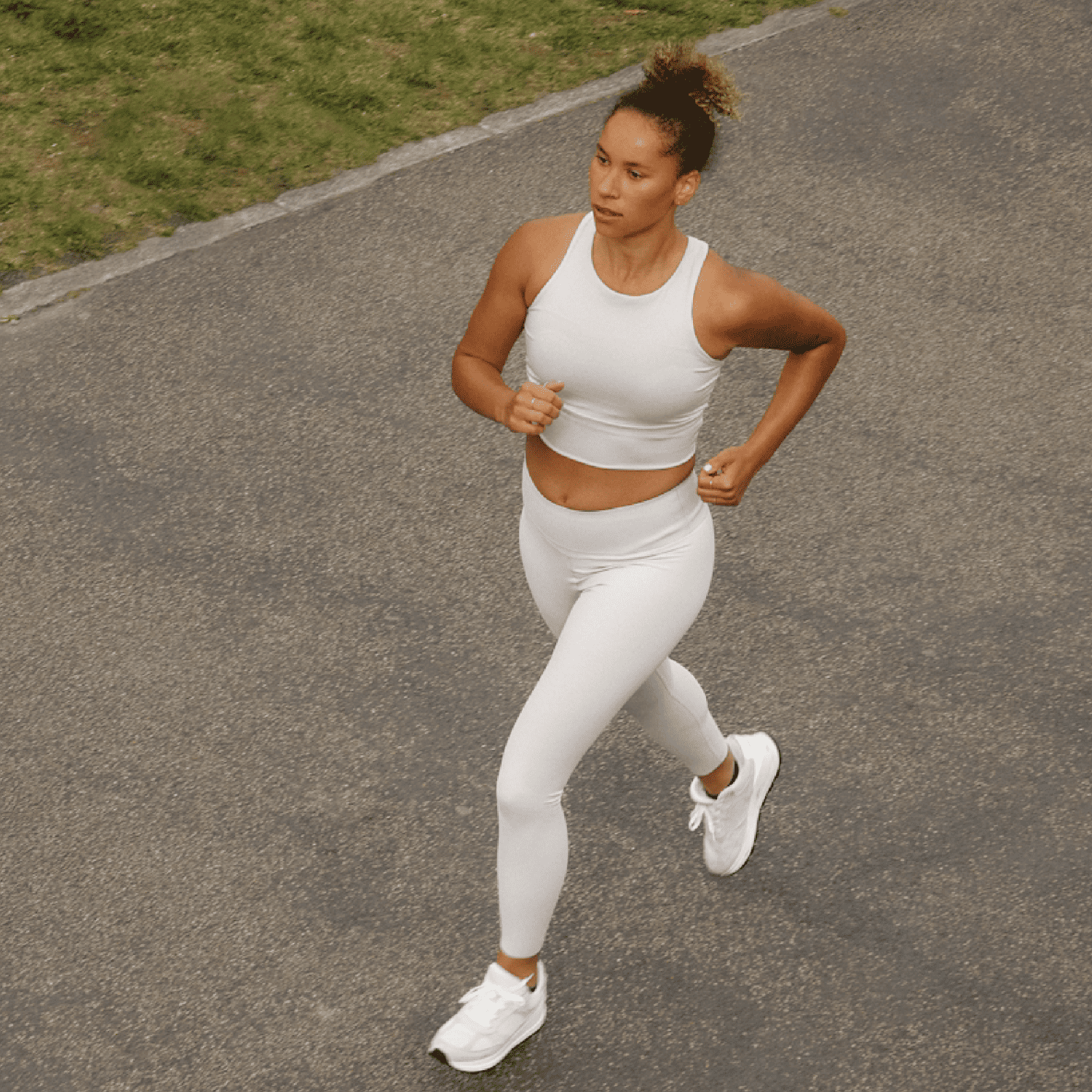مع اقتراب موسم الصيف، نجد أن جداول أعمال الكثير منا مليئة بالإجازات والمغامرات الخارجية والتجمعات الاجتماعية والمناسبات العائلية. ورغم أن العطلات الصيفية غالبًا ما تكون واحدة من أكثر الأوقات متعة وترقبًا في العام، إلا أنها قد تكون أيضًا فترة من التوتر المتزايد وكما تعلم مؤسستا الشركة روزي وأليس جيدًا، فهي حقًا فترة صعبة للغاية!
إن الرغبة في الاستفادة القصوى من الصيف تؤدي إلى تراكم المهام اليومية بالإضافة إلى تحدي الحفاظ على الطاقة والصحة أثناء العمل. لمساعدتك على التعامل مع هذا الوقت المزدحم والممتع من العام، جمعنا بعض النصائح من الخبراء من أليس ماكنتوش، أخصائية التغذية ورئيسة قسم العلوم في Equi.

تقدم أليس، إحدى المؤسسات المشاركة في شركة Equi، معرفتها السريرية وخبرتها لتقديم نصائح عملية حول كيفية البقاء نشيطًا وصحيًا ومتوازنًا طوال فصل الصيف.
إن أحد أفضل جوانب الصيف هو وفرة ضوء النهار، الذي لا يرفع معنوياتنا فحسب، بل يلعب أيضًا دورًا حاسمًا في صحتنا الجسدية. يعد التعرض لضوء النهار ضروريًا لإنتاج فيتامين د وكذلك لتنظيم دورة النوم والاستيقاظ، والمعروفة أيضًا باسم الإيقاع اليومي. تشاركنا أليس أفكارها حول كيفية إتقان روتينك الصباحي، لدعم مستويات الطاقة والنوم المثلى. نظرًا لأن السفر هو سمة مشتركة لموسم الصيف، سواء كان ذلك لقضاء إجازة ضرورية للغاية أو أيام مع الأطفال، فسوف نناقش كيفية معالجة مشاكل الجهاز الهضمي الشائعة التي قد تظهر. يمكن أن تساهم التغييرات في النظام الغذائي والجفاف والجداول الزمنية غير المنتظمة في الإمساك. تشاركنا أليس أفكارها حول دعم صحة الجهاز الهضمي والتغلب على الإمساك، مع جميع نصائحها وحيلها لمعالجة هذه المشكلة. قد يكون الحفاظ على نظام غذائي صحي أمرًا صعبًا عند السفر، خاصة مع إغراء الاستمتاع بالمأكولات والحلويات المحلية. ومع ذلك، تقدم أليس استراتيجيات عملية للبقاء على المسار الصحيح مع أهدافك الغذائية. كما تعالج أليس ارتفاع نسبة السكر في الدم، والذي قد يصبح شائعًا خلال العطلات الصيفية، مع تناول كميات لا حصر لها من الآيس كريم والوجبات الغنية بالكربوهيدرات. وأخيرًا، تقدم أليس توصياتها بشأن أساسيات السفر التي يمكنك اصطحابها معك، والتي تدعم الصحة والعافية أثناء التنقل.
بفضل نصائحها الخبيرة، يمكنك الاستمتاع بموسم الصيف على أكمل وجه، والشعور بالنشاط والصحة والاستعداد لمواجهة جدولك المزدحم. سواء كنت تستمتع بأشعة الشمس أو تستكشف وجهات جديدة أو تستمتع ببساطة بدفء ومتعة هذا الموسم، فإن العناية بصحتك هي المفتاح لتحقيق أقصى استفادة من هذا الوقت من العام.
اغتنم الفرصة في الأيام المشمسة
يقدم ضوء النهار، وخاصة ضوء الشمس، العديد من الفوائد الصحية التي تتجاوز مجرد الحصول على سمرة! نعلم جميعًا أن التعرض لأشعة الشمس يلعب دورًا حاسمًا في إنتاج فيتامين د، ولكن هل تعلم أنه يساعد أيضًا في تنظيم إيقاعك اليومي؟
دعونا نلقي نظرة على تخليق فيتامين د أولاً، وهو أحد أهم فوائد التعرض لأشعة الشمس. فيتامين د ضروري لصحة العظام لأنه يسهل امتصاص الكالسيوم والفوسفور، وهي معادن حيوية للحفاظ على قوة العظام والأسنان. بالإضافة إلى ذلك، يدعم فيتامين د وظيفة المناعة ويرتبط بانخفاض خطر الإصابة بأمراض المناعة الذاتية والالتهابات (1). كما يلعب دورًا في تنظيم الحالة المزاجية، حيث يرتبط نقصه بحالات مثل الاكتئاب والاضطراب العاطفي الموسمي (SAD) (2). دور آخر للتعرض لأشعة الشمس هو تنظيم الإيقاع اليومي. الضوء الطبيعي هو المنظم الأساسي للإيقاع اليومي، وهي الساعة الداخلية لجسمنا التي تملي دورات النوم والاستيقاظ. يساعد التعرض للضوء الطبيعي على مزامنة الإيقاع اليومي، مما يؤدي إلى تحسين جودة النوم والصحة العامة. يؤثر التنظيم السليم لهذا الإيقاع على التوازن الهرموني والهضم والوظيفة الإدراكية، مما يؤكد على أهمية ضوء النهار في الحياة اليومية (3).
وإدراكًا لأهمية التعرض لأشعة الشمس، طلبنا من أليس أن تقدم لنا بعض النصائح حول روتينها الصباحي لتحقيق أقصى استفادة من فصل الصيف:
"تظهر الأبحاث حول الفوائد العديدة التي تعود على أعيننا من التعرض لضوء النهار خلال 90 دقيقة من الاستيقاظ - وهو أمر يسهل القيام به في هذا الوقت من العام. فقد ثبت أن التعرض لضوء النهار لمدة 5-20 دقيقة فقط (من الأفضل ألا يكون ذلك من خلال نافذة، وتذكر، لا تستخدم نظارات شمسية!) يعمل على تحسين الطاقة والمزاج وحتى الإنتاجية طوال اليوم. وقد يساعدنا أيضًا على النوم بشكل أفضل في الليل. حاول الحد من تناول الكافيين حتى تحصل على هذه الدقائق التسعين لتحقيق أقصى استفادة."
ولتحقيق أقصى استفادة من أشعة الشمس مع تقليل المخاطر، إليك بعض النصائح الإضافية:
الأوقات المثالية للتعرض لأشعة الشمس - أفضل وقت للتعرض لأشعة الشمس لتكوين فيتامين د هو منتصف النهار، وعادة ما يكون ذلك بين الساعة 10 صباحًا و2 ظهرًا، عندما تكون الشمس في أعلى نقطة لها، وتكون أشعة UVB في أشدها. وخلال هذه الفترة، قد يكون التعرض القصير (حوالي 10-30 دقيقة، حسب نوع الجلد وموقعه) كافيًا لتكوين فيتامين د بشكل كافٍ دون استخدام واقي من الشمس (4).
حماية من الشمس - على الرغم من أن التعرض لأشعة الشمس بشكل معتدل مفيد، إلا أن الإفراط في التعرض لها قد يؤدي إلى تلف الجلد. بعد التعرض لأشعة الشمس لمدة تتراوح بين 10 إلى 30 دقيقة، من الأفضل استخدام كريم واقٍ من الشمس بعامل حماية من الشمس 30 على الأقل، وارتداء ملابس واقية، وتجنب التعرض لأشعة الشمس لفترات طويلة، خاصة خلال ساعات الذروة.
اعتبارات نوع البشرة – عليك أن تأخذ نوع بشرتك في الاعتبار عندما يتعلق الأمر بالتعرض لأشعة الشمس. على سبيل المثال، الأشخاص الذين لديهم لون بشرة أفتح يقومون بتخليق فيتامين د بشكل أسرع من الأشخاص ذوي البشرة الداكنة، الذين قد يحتاجون إلى التعرض لفترة أطول. الأشخاص الذين لديهم لون بشرة أغمق هم أيضًا أقل عرضة لتلف الجلد المرتبط بالأشعة فوق البنفسجية. إذا كنت غير متأكد من مقدار التعرض المناسب لك، فاختر واقيًا من الشمس وفكر في تناول مكملات فيتامين د على مدار العام بدلاً من ذلك.
وفيما يلي بعض الطرق العملية الإضافية لدمج المزيد من التعرض لضوء النهار في روتينك اليومي:
المشي الصباحي - ابدأ يومك بالمشي السريع في شمس الصباح! فهذا لا يعزز مستويات فيتامين د فحسب، بل يمنحك الطاقة أيضًا طوال اليوم. ثق في ذلك، فهو فعال حقًا!
تمرين في الهواء الطلق - إذا كنت تمارس الرياضة عادة في الأماكن المغلقة، ففكر في ممارسة التمارين الرياضية في الخارج. يمكن أن تكون الأنشطة مثل الركض أو ركوب الدراجات أو حتى اليوجا في الحديقة منعشة ومنشطة. تعرف على ما يحدث في منطقتك المحلية أو انضم إلى سباق الجري في الحديقة المحلية - فهذا سيجعل تمرينك أكثر متعة أيضًا!
البستنة - البستنة هي وسيلة مريحة لقضاء الوقت في الهواء الطلق. فهي توفر ممارسة معتدلة للرياضة والاتصال المباشر بالطبيعة، مما يعود بالنفع على الصحة البدنية والعقلية. نحن نعلم أن ميكروبيومنا يستفيد من التعرض للتربة والنباتات والطبيعة، لذا فهي وسيلة مربحة في كتبنا.
تناول الطعام والنزهات في الهواء الطلق - تناول وجبات الطعام في الخارج، مثل تناول الإفطار أو الغداء على الشرفة أو الفناء أو في نزهة في الحديقة، يعد طريقة سهلة لزيادة التعرض لأشعة الشمس دون التعرض لأشعة الشمس. نحن جميعًا نهتم بتراكم العادات، وتناول الطعام في الخارج هو أحد هذه العادات!
التنقلات النشطة - إذا كان ذلك ممكنًا، يمكنك المشي أو ركوب الدراجة أثناء التنقل إلى العمل أو إلى وجهات أخرى. فهذا لا يزيد من تعرضك لأشعة الشمس فحسب، بل ويضيف أيضًا نشاطًا بدنيًا إلى يومك. إذا كنت بحاجة إلى ركوب الحافلة أو المترو، فحاول النزول قبل محطة أو محطتين من المحطة والمشي بقية الطريق. ليس هذا فحسب، بل ستكتسب أيضًا القدرة على المشي!
تجنب الإمساك أثناء السفر
غالبًا ما يجلب السفر، سواء للترفيه أو العمل، الإثارة والاستراحة من الروتين. ومع ذلك، فإنه قد يعطل أيضًا أنماط الهضم المنتظمة، مما يؤدي إلى الإمساك - وهي مشكلة شائعة يواجهها الكثير منا خلال موسم الصيف.إن فهم العوامل التي تساهم في الإمساك المرتبط بالسفر وتبني الاستراتيجيات المناسبة يمكن أن يساعد في الحفاظ على صحة الجهاز الهضمي وراحته أثناء التنقل. هنا نستكشف العوامل التي يمكن أن تساهم في الإمساك أثناء السفر:
تغييرات في النظام الغذائي - غالبًا ما ينطوي السفر على تناول أطعمة مختلفة عن المعتاد، وقد يشمل ذلك تناول كميات أقل من الألياف أو زيادة استهلاك الأطعمة المصنعة والأطعمة الجاهزة. وقد تؤدي هذه التغييرات الغذائية إلى إبطاء عملية الهضم وتقليل انتظام حركة الأمعاء.
جفاف - الجفاف هو أحد الأسباب الرئيسية للإمساك. يمكن أن يحدث بسهولة أكبر خلال أشهر الصيف أو أثناء السفر، وخاصة في الرحلات الطويلة حيث يكون هواء المقصورة جافًا، أو في المناخات الحارة حيث يزداد فقدان الماء من خلال العرق. يمكن أن يؤدي عدم تناول كمية كافية من السوائل إلى تصلب البراز، مما يجعل من الصعب إخراجه. تأكد من تناول ما لا يقل عن 2 لتر من الماء أو أكثر إذا كنت تتعرق.
تعطيل الروتين اليومي - السفر غالبًا ما يعطل الجداول اليومية، بما في ذلك مواعيد الوجبات المنتظمة وعادات الحمام. إن التوفيق بين الحياة الأسرية والأطفال في العطلات المدرسية والعمل يمكن أن يؤدي إلى إهمال روتيننا الأساسي! يمكن أن يؤثر هذا الاضطراب على إيقاع الجسم الطبيعي ويؤدي إلى الإمساك. بالإضافة إلى ذلك، فإن التوتر والقلق المرتبطين بالسفر يمكن أن يؤدي إلى تفاقم مشاكل الجهاز الهضمي - لذلك لا يشعر الكثير منا بالراحة عند الذهاب إلى الحمام أثناء التنقل!
يعد الحفاظ على رطوبة الجسم أمرًا بالغ الأهمية لمنع الإمساك، وخاصة أثناء السفر. وفيما يلي بعض النصائح العملية للحفاظ على ترطيب الجسم:
اشرب كمية كبيرة من الماء - احرص على شرب 8-10 أكواب من الماء على الأقل يوميًا. أثناء الرحلات الجوية، حاول شرب الماء بانتظام، حتى لو لم تشعر بالعطش، حيث يمكن أن يؤدي الهواء الجاف في المقصورة والطعام المالح على متن الطائرة إلى تسريع الجفاف. احمل معك زجاجة ماء قابلة لإعادة التعبئة، حيث يمكنك غالبًا العثور على نوافير مياه في المطار. عند الخروج، احمل معك دائمًا الماء الخاص بك، حيث ستكون فرصتك في البقاء رطبًا أكبر بكثير من الحاجة إلى التقاط زجاجة أثناء التنقل. يمكنك احتساء هذا الماء أثناء الرحلات اليومية مع الأطفال أو أثناء أيام السفر الطويلة.
تجنب المشروبات المسببة للجفاف – بالرغم من أن تناول كوب من النبيذ الوردي في الصيف أمر مغرٍ، إلا أنه يجب الحد من تناول الكحوليات وأي مشروبات تحتوي على الكافيين، مثل القهوة والمشروبات الغازية، لأنها قد تسبب آثارًا مدرة للبول، مما يزيد من فقدان السوائل. إذا كنت تشرب الكثير من النبيذ، فتأكد من تناول كوب من الماء في كل مشروب للحفاظ على ترطيب الجسم، بل وحتى تناول الأملاح المعدنية لتعويض أي معادن مفقودة.
تناول الأطعمة المرطبة - أدرج الأطعمة التي تحتوي على نسبة عالية من الماء في نظامك الغذائي، مثل الفواكه مثل البطيخ أو البرتقال والخضراوات مثل الخيار والطماطم. أضف البطيخ إلى السلطات وقم بإعداد الخضروات النيئة مع الخيار والطماطم لمرافقة أي صلصات.
كما طلبنا من أليس أن تقدم لنا نصائحها فيما يتعلق بالإمساك أثناء السفر، وهذا ما قالته:
"يشكو العديد من عملائي من هذا الأمر - فهو قد يفسد الأمور ويجعلك تشعر بعدم الراحة والانتفاخ. ويرجع ذلك إلى حد كبير إلى الرحلات المبكرة وتغير المناطق الزمنية وقلة الألياف."
- تفاحة واحدة يوميًا - يمكنك دائمًا العثور على واحدة، والألياف والبكتين الموجودان في القشرة رائعان للحفاظ على حركة الأمعاء.
- الكيوي أفضل أيضًا إذا تمكنت من العثور عليه، حيث أن تناول حبتين منه يوميًا يساعد حقًا في وظائف الأمعاء، كما أنه غذاء رائع للبشرة.
- خصص وقتًا كل صباح للذهاب إلى الحمام - ويفضل بعد تناول مشروب دافئ أو وجبة الإفطار. الأمعاء عضو معتاد جدًا، وإذا أعطيتها الوقت وشعرت بالاسترخاء، فمن المرجح أن تذهب إلى الحمام. إذا حبستها، فلن يؤدي ذلك إلا إلى تفاقم الإمساك.
- ضع بعض بذور الشيا أو بذور الكتان في وعاء وأحضرها معك في حقيبتك. واحد إنه رائع ويمكنك إضافة ملعقة كبيرة من هذا المنتج إلى وجبة الإفطار الخاصة بك كل يوم - فهو يحتوي على نسبة منخفضة من الفودماب، لذلك لن يسبب الانتفاخ لأي شخص يعاني من هذا، وهو رائع للحفاظ على انتظام الأمعاء.
- جرّب بعض نقاط الوخز بالإبر لعلاج الإمساك - يمكنك العثور عليها عبر الإنترنت.
يمكن أن يكون الإمساك المرتبط بالسفر مشكلة مزعجة وغير مريحة، ولكن يمكن الوقاية منه إلى حد كبير باتباع الاستراتيجيات الصحيحة. يمكن أن يساعد الحفاظ على ترطيب الجسم، واتباع نظام غذائي غني بالألياف، والانتباه إلى إشارات جسمك في الحفاظ على عمل الجهاز الهضمي بسلاسة أثناء التنقل. من خلال التخطيط المسبق واتخاذ خيارات واعية، يمكنك الاستمتاع برحلاتك دون الشعور بعدم الراحة بسبب مشاكل الجهاز الهضمي!
البقاء على المسار الصحيح لتحقيق الأهداف الغذائية
غالبًا ما يجلب الصيف تغييرًا مرحبًا به في الروتين، مع العطلات والحفلات الصيفية وربما المزيد من تناول الطعام بالخارج. في حين أن هذه التجارب ممتعة، إلا أنها قد تشكل أيضًا تحديات للحفاظ على الأهداف الغذائية. ومع ذلك، من خلال بعض التخطيط والممارسات الواعية، من الممكن البقاء على المسار الصحيح والاستمتاع بموسم الصيف دون المساس بالصحة. فيما يلي بعض الاستراتيجيات لتناول مجموعة متنوعة من الأطعمة النباتية، واتخاذ خيارات أكثر صحة عند تناول الطعام بالخارج، وممارسة الأكل الواعي.
سألنا أليس عن كيفية تحقيق أهدافنا الغذائية في الصيف. وإليك ما قالته:
"من المعروف على نطاق واسع أننا بحاجة إلى تناول المزيد من النباتات، ومعظمها يأتي من الخضروات. وللحصول على هذه الفائدة، حاول تنويع الأطعمة وتناول طعام واحد على الأقل من كل مجموعة من المجموعات النباتية التالية: الفاكهة والخضروات والعدس/الفاصوليا والحبوب والمكسرات والبذور والتوابل والأعشاب والخضروات المخمرة. وهذا يعني أنك تحصل على المزيد من أنواع الألياف وكذلك الفيتامينات والمعادن والفيتويستروجينات والبريبايوتكس ومضادات الأكسدة - الطاقة والفائدة لكامل الجسم بغض النظر عن عمرك."
إن تناول مجموعة متنوعة من الأطعمة النباتية هو مفتاح اتباع نظام غذائي صحي، حيث يوفر العناصر الغذائية الأساسية والألياف والمواد الكيميائية النباتية التي تدعم الصحة العامة. إن مفهوم "تناول 30 نباتًا في الأسبوع" يشجع على التنوع الغذائي، والذي ثبت أنه يعزز ميكروبيوم الأمعاء الأكثر صحة ويقلل من خطر الإصابة بالأمراض المزمنة (5). فيما يلي بعض الطرق الإضافية لدمج المزيد من النباتات في نظامك الغذائي:
تخطيط الوجبات - خطط لوجباتك بحيث تتضمن خضروات وفواكه وبقوليات ومكسرات وبذور وحبوب كاملة مختلفة. وهذا يضمن تنوع العناصر الغذائية ويساعد في تحقيق هدف الثلاثين نباتًا. ألق نظرة على سلة الطعام وتأكد من أن لديك خضروات وفواكه بألوان مختلفة وأصنافًا مختلفة.
تجربة الأطعمة الجديدة - استغل الصيف كفرصة لتجربة فواكه وخضروات موسمية جديدة. تعتبر أسواق المزارعين أماكن ممتازة للعثور على منتجات طازجة مزروعة محليًا. اطلب صندوقًا من الخضروات، مما سيشجعك على تجربة خضروات جديدة أيضًا وعادةً ما تكون من الخضروات الموسمية أيضًا.
تضمين النباتات في كل وجبة - أضف الخضراوات إلى وجبة الإفطار (على سبيل المثال، السبانخ والتوت في العصائر أو الفطر والخضراوات والفلفل في العجة/الفطائر)، وأضف السلطات أو الخضراوات الجانبية في الغداء، وتأكد من أن العشاء يتضمن مجموعة متنوعة من الخضراوات. حاول أن تتناول 2-3 خضراوات في الوجبة الواحدة على النحو الأمثل.
تناول الوجبات الخفيفة النباتية - اختر الفاكهة أو المكسرات أو أعواد الخضار كوجبات خفيفة. هذه الخيارات ليست مغذية فحسب، بل إنها مناسبة أيضًا للسفر أو الأيام المزدحمة. لكن الأمر كله يتعلق بتحضير الوجبات بهذه الخيارات، لذا نظّم أمورك وحضّر بعض الوجبات الخفيفة للأسبوع القادم أيضًا.
حسنًا، لقد قمت بالفعل بزراعة 30 نباتًا في الأسبوع، ولكن تناول الطعام بالخارج قد يكون أمرًا صعبًا عند محاولة الحفاظ على هذا.ومع ذلك، من خلال الاختيارات المدروسة، من الممكن الاستمتاع بالوجبات خارج المنزل دون المساس بالأهداف الغذائية. وإليك كيفية اتخاذ خيارات أكثر صحة:
اختر الخضروات الطازجة والسلطات كمقبلات أو أطباق جانبية - ابدأ وجباتك بالسلطة أو تناول طبق جانبي من الخضروات بدلاً من البطاطس المقلية. فهذا لا يوفر الألياف فحسب، بل يساعد أيضًا في التحكم في الجوع وتوازن نسبة السكر في الدم.
اختر البروتينات الخالية من الدهون - اختر الأطباق التي تحتوي على بروتينات قليلة الدهون مثل الدجاج أو السمك أو البقوليات. فهذه الخيارات تحتوي عمومًا على نسبة أقل من الدهون المشبعة وقد تكون أكثر صحة أيضًا.
الحبوب الكاملة أفضل من الحبوب المكررة - عندما تكون متاحة، اختر خيارات الحبوب الكاملة مثل الأرز البني، أو الكينوا، أو خبز القمح الكامل، والتي توفر المزيد من العناصر الغذائية والألياف من نظيراتها البيضاء المكررة.
التحكم في الحصص - غالبًا ما تقدم المطاعم أجزاء كبيرة من الطعام. فكر في مشاركة طبق واحد، أو أخذ بقايا الطعام إلى المنزل، أو طلب أجزاء أصغر لتجنب الإفراط في تناول الطعام. إذا كنت ترغب في تناول الحلوى، فشاركها مع الآخرين حتى تتمكن من الاستمتاع بها إلى النصف دون تجنبها تمامًا!
الحد من الأطعمة المصنعة والأطعمة ذات السعرات الحرارية العالية - تجنب الأطباق المقلية أو المغطاة بالصلصات الثقيلة. اختر الأطباق المشوية أو المطهوة على البخار أو المخبوزة كلما أمكن ذلك. إذا كنت تفضل الأطباق المقلية، فلماذا لا تتناول سلطة الدجاج المشوي كطبق رئيسي بدلاً من البرجر - فالقليل من الأطعمة التي تفضلها قد يفيدك في بعض الأحيان، ولكن حاول أن توازن بين ذلك وبين خيارات أفضل في أماكن أخرى.
أخيرًا، يتضمن تناول الطعام بوعي الانتباه الكامل لتجربة تناول الطعام، مما يساعد على تجنب الإفراط في تناول الطعام وتعزيز الاستمتاع بالطعام. كما يشجع على الاستماع إلى إشارات الجوع والشبع، مما قد يمنع الوقوع في فخ تناول الطعام بدافع العادة أو التوتر. وإليك كيفية ممارسة تناول الطعام بوعي:
تناول الطعام ببطء - خذ وقتك في المضغ جيدًا واستمتع بكل لقمة. فهذا لا يساعد على الهضم فحسب، بل يتيح أيضًا الوقت للدماغ لتسجيل الشعور بالشبع، مما يقلل من احتمالية الإفراط في تناول الطعام (6). احرص على تناول حوالي 15 إلى 20 لقمة في كل لقمة!
تجنب التشتيت - تناول الطعام دون تشتيت، مثل مشاهدة التلفاز أو استخدام الهاتف الذكي، يمكن أن يساعد في التركيز على الوجبة وإشارات الجوع في الجسم. استمتع بوجبات الطعام مع العائلة بأكملها خلال أيام الصيف الطويلة. اجلس على طاولة طعام واستمتع بالجانب الاجتماعي لوجبات الطعام.
تأمل في الجوع والشبع - قبل تناول الطعام، قم بتقييم مستوى جوعك، وبعد تناول الطعام، خذ لحظة لتقييم مدى شبعك. خصص 20 دقيقة على الأقل للتأكد من وصول الطعام إلى معدتك بالكامل. تساعد هذه الممارسة في مواءمة تناول الطعام مع الجوع الفعلي بدلاً من الإشارات الخارجية أو المشتتات!
استمتع بالتجربة - ركز على نكهات الطعام وملمسه ورائحته. إن الاستمتاع بالتجربة الحسية يمكن أن يزيد من الشعور بالرضا ويقلل من الرغبة في الإفراط في تناول الطعام. من المفيد حقًا أن تعد وجباتك بنفسك بدلاً من الاعتماد على الخروج أو تناول الطعام الجاهز، حيث إن مجرد طهي الوجبة يحفز الحواس ووظائف الجهاز الهضمي.
تقليل ارتفاع نسبة السكر في الدم
غالبًا ما تجلب العطلات الصيفية مجموعة كبيرة من الأطعمة اللذيذة ولكنها ليست صحية تمامًا، من الآيس كريم إلى الوجبات الغنية بالكربوهيدرات التي نستمتع بها خلال العطلات. في حين أن الاستمتاع بالموسم من حين لآخر يعد جزءًا من الاستمتاع به، فإن تناول كميات كبيرة من الأطعمة السكرية والنشوية باستمرار يمكن أن يؤدي إلى ارتفاع نسبة السكر في الدم. لا تساهم هذه الارتفاعات في زيادة الوزن فحسب، بل تؤدي أيضًا إلى انهيار الطاقة مما يؤدي إلى المزيد من الرغبة الشديدة في تناول السكر. تؤكد أليس ماكنتوش على أهمية إدارة مستويات السكر في الدم خلال هذا الوقت. إحدى النصائح العملية التي تقدمها هي مراعاة الترتيب الذي يتم به تناول الأطعمة أثناء الوجبات.وهذا ما كان لديها لتقوله:
"ربما سمعت أن ترتيب تناولك للطعام عند تناوله قد يحدث فرقًا في مدى تأثر نسبة السكر في الدم بهذا الطعام. وهذا مهم لأن ارتفاع نسبة السكر في الدم قد يؤدي إلى زيادة الميل إلى زيادة الوزن (غالبًا في منتصف الجسم!) ثم انخفاض حاد في الوزن بعد ذلك، مما يجعلك غالبًا تلجأ إلى تناول المزيد من الأطعمة السكرية.
تعتمد كيفية تأثر نسبة السكر في الدم لديك بما تأكله على عوامل أخرى كثيرة. ومع ذلك، فهذه حيلة صغيرة قد تحدث فرقًا ملحوظًا عندما تتناول أطعمة تحتوي على نسبة عالية من الكربوهيدرات مثل المعكرونة والخبز ورقائق البطاطس خلال أشهر الصيف، وغالبًا في المطاعم.
الحيلة هنا هي محاولة وضع بعض الخضروات في الطبق، وتناولها أولاً. وحتى لو أعقبت ذلك بطبق يحتوي على نسبة أعلى من الكربوهيدرات ــ مثل المعكرونة، فقد يكون التأثير على نسبة السكر في الدم أفضل ــ فمن الجدير بالمحاولة في رأينا".
إذًا، ما هو العلم وراء هذا؟ تشير الأبحاث الحديثة إلى أن ترتيب تناول الطعام يمكن أن يؤثر بشكل كبير على مستويات الجلوكوز في الدم بعد الأكل. يمكن أن يساعد تناول الخضروات أو البروتينات قبل الكربوهيدرات في تخفيف ارتفاع نسبة السكر في الدم المرتبط عادةً بالأطعمة الغنية بالكربوهيدرات. يحدث هذا لأن الألياف والبروتينات والدهون تبطئ إفراغ المعدة وامتصاص الكربوهيدرات، مما يؤدي إلى زيادة تدريجية في مستويات الجلوكوز في الدم (7). كما تقترح أليس، فإن بدء الوجبة بسلطة أو جزء من الخضار الورقية يمكن أن يجهز الجهاز الهضمي ويقلل من الاستجابة السكرية عند تناول الكربوهيدرات في وقت لاحق من الوجبة. تعمل الألياف الموجودة في الخضار كحاجز مادي، مما يبطئ امتصاص السكريات في مجرى الدم. بالإضافة إلى ذلك، تحفز البروتينات والدهون إفراز الإنكريتينات، وهي الهرمونات التي تعزز إفراز الأنسولين وتساعد في تنظيم مستويات الجلوكوز في الدم.
للاستمتاع بوجبات الصيف دون التعرض لارتفاع كبير في نسبة السكر في الدم، ضع في اعتبارك الاستراتيجيات التالية:
تضمين الخضروات في كل وجبة – كما تنصح أليس، احرصي دائمًا على بدء وجباتك بالخضروات أو السلطات غير النشوية. فهذا لا يساعد فقط في التحكم في مستويات السكر في الدم، بل يضمن أيضًا استهلاكك للقدر الكافي من الألياف والعناصر الغذائية الدقيقة.
تناول الكربوهيدرات مع البروتين والدهون - كلما أمكن، حاول تناول الكربوهيدرات مع البروتين والدهون الصحية. على سبيل المثال، إذا كنت تتناول الخبز، أضف بعض الأفوكادو أو الجبن. يمكن أن يساعد هذا المزيج في إبطاء عملية هضم وامتصاص السكريات.
اختر الحبوب الكاملة - اختر أنواعًا من الخبز والمعكرونة والأرز المصنوعة من الحبوب الكاملة بدلًا من الأنواع البيضاء/المكررة. تتمتع الحبوب الكاملة بمؤشر جلايسيمي أقل، مما يعني أنها تتسبب في إطلاق الجلوكوز في مجرى الدم بشكل أبطأ وأكثر استدامة.
أحجام الحصص معتدلة - كن حريصًا على حجم الحصص، خاصة عند تناول الأطعمة الغنية بالكربوهيدرات أو السكريات. يمكن أن تقلل الحصص الأصغر من الحمل الجلايسيمي وتساعد في الحفاظ على التحكم في نسبة السكر في الدم.
ابقى رطبًا - في بعض الأحيان، قد يختلط الشعور بالعطش بالجوع، مما يؤدي إلى تناول وجبات خفيفة غير ضرورية. يمكن أن يساعد شرب الماء طوال اليوم في منع ذلك وتقليل احتمالية تناول الوجبات الخفيفة السكرية.
أساسيات السفر - ما الذي يجب أن تحزمه للحفاظ على الصحة
غالبًا ما يعطل السفر الروتين اليومي، مما يجعل من الصعب الحفاظ على عادات الأكل الصحي والعافية. ومع ذلك، من خلال التخطيط الدقيق ومستلزمات السفر المناسبة، يمكنك دعم صحتك ورفاهتك أثناء التنقل.طلبنا من أليس أن تقدم لنا أفضل النصائح للحفاظ على الصحة أثناء السفر:
"احزم منتجًا سهل الاستخدام في عبوة واحدة! يمكن لجسمك أن يستفيد حقًا من المكملات الغذائية أثناء غيابك، خاصة وأنك قد لا تتحكم في نظامك الغذائي، وربما تشرب المزيد من الكحول وتقضي ساعات في المطارات (هل سافر أي شخص في موعده منذ عام 2019؟! نحن أيضًا). في هذا الوقت من العام، غالبًا ما يكون هناك المزيد من التواصل الاجتماعي، مما قد يضغط على الكبد. تساعد المكملات الغذائية حقًا هنا، ولكن من الواضح أننا لا نريد تناول حبوب منع الحمل أو شغل مساحة كبيرة في الحقيبة بالمكملات الغذائية. Equi مثالي لأن أي تركيبة تناسبك بشكل أفضل تحتوي على 10 مكملات في 1، مما يعني منتجًا يوميًا سهلًا وتنتهي، مع العلم أن جسمك يتمتع بأساس غذائي قوي. بعد أن أمضيت العقد الماضي في العمل مع الأشخاص واحدًا لواحد ومعرفة ما ينجح، بينما أقرأ أيضًا أحدث العلوم، أقوم بصياغة كل منتج بدقة حتى تشعر بالفرق عند تناوله. سواء كان ذلك من أجل طاقتك أو الهضم أو الهرمونات أو البشرة أو لدعم جسمك عندما تكون مشغولاً حقًا، خذ هذا اختبار 30 ثانية "لمعرفة أي صيغة Equi هي الأفضل بالنسبة لك."
تنصل: جميع المعلومات الواردة في هذا الموقع هي معلومات عامة فقط، ولا ينبغي التعامل معها كبديل للنصيحة الطبية من طبيبك الخاص أو أي متخصص آخر في الرعاية الصحية يقدم نصائح شخصية حول التغذية أو نمط الحياة. إذا كانت لديك أي مخاوف بشأن صحتك العامة، فيجب عليك الاتصال بمقدم الرعاية الصحية المحلي الخاص بك. لا يوجد نظام غذائي أو نظام مكملات غذائية يناسب الجميع ويجب عليك دائمًا طلب المساعدة من طبيب عام وخبير صحي مسجل قبل إجراء أي تغييرات على نظامك الغذائي، أو قبل تقديم أي مكملات غذائية. هذا مهم بشكل خاص أثناء الحمل.
مراجع
- Holick, MF (2007). نقص فيتامين د. مجلة نيو إنجلاند الطبية، 357(3)، ص 266-281.
- لام، آر دبليو، ليفيت، إيه جيه، ليفيتان، آر دي، إنز، إم دبليو، مورهاوس، آر، ميخالاك، إي إي، وتام، إي إم (2006). دراسة CAN-SAD: تجربة عشوائية محكومة حول فعالية العلاج بالضوء والفلوكستين في المرضى الذين يعانون من اضطراب عاطفي موسمي في الشتاء. المجلة الأمريكية للطب النفسي، 163(5)، 805-812.
- Czeisler, CA, & Gooley, JJ (2007). النوم والإيقاعات اليومية لدى البشر. ندوات كولد سبرينج هاربور حول علم الأحياء الكمي، 72، 579-597.
- Holick, MF (2007). نقص فيتامين د. مجلة نيو إنجلاند الطبية، 357(3)، ص 266-281.
- Heiman, ML, & Greenway, FL (2016). تعتمد صحة الميكروبيوم المعوي على التنوع الغذائي. الأيض الجزيئي، 5(5)، 317-320.
- روبنسون، إي، أفيارد، بي، دالي، أيه، جولي، كيه، لويس، أيه، ليسيت، دي، ... وهيجز، إس. (2013). تناول الطعام باهتمام: مراجعة منهجية وتحليل تلوي لتأثير ذاكرة تناول الطعام والوعي به على تناول الطعام. المجلة الأمريكية للتغذية السريرية، 97(4)، 728-742.
- Shukla, AP, Iliescu, RG, Thomas, CE, & Aronne, LJ (2015). ترتيب الطعام له تأثير كبير على مستويات الجلوكوز والأنسولين بعد الأكل. رعاية مرضى السكري، 38(7)، e98-e99.




